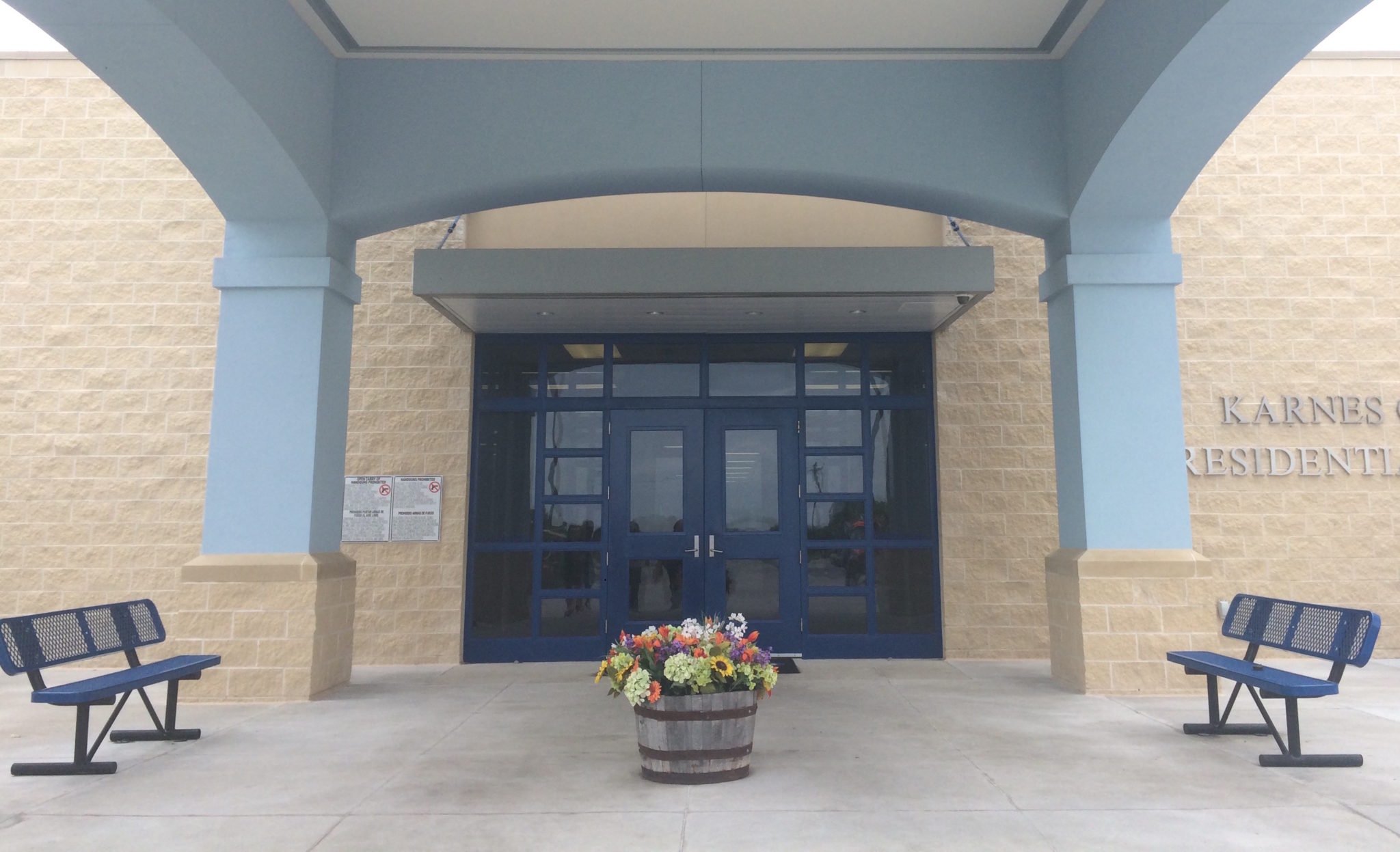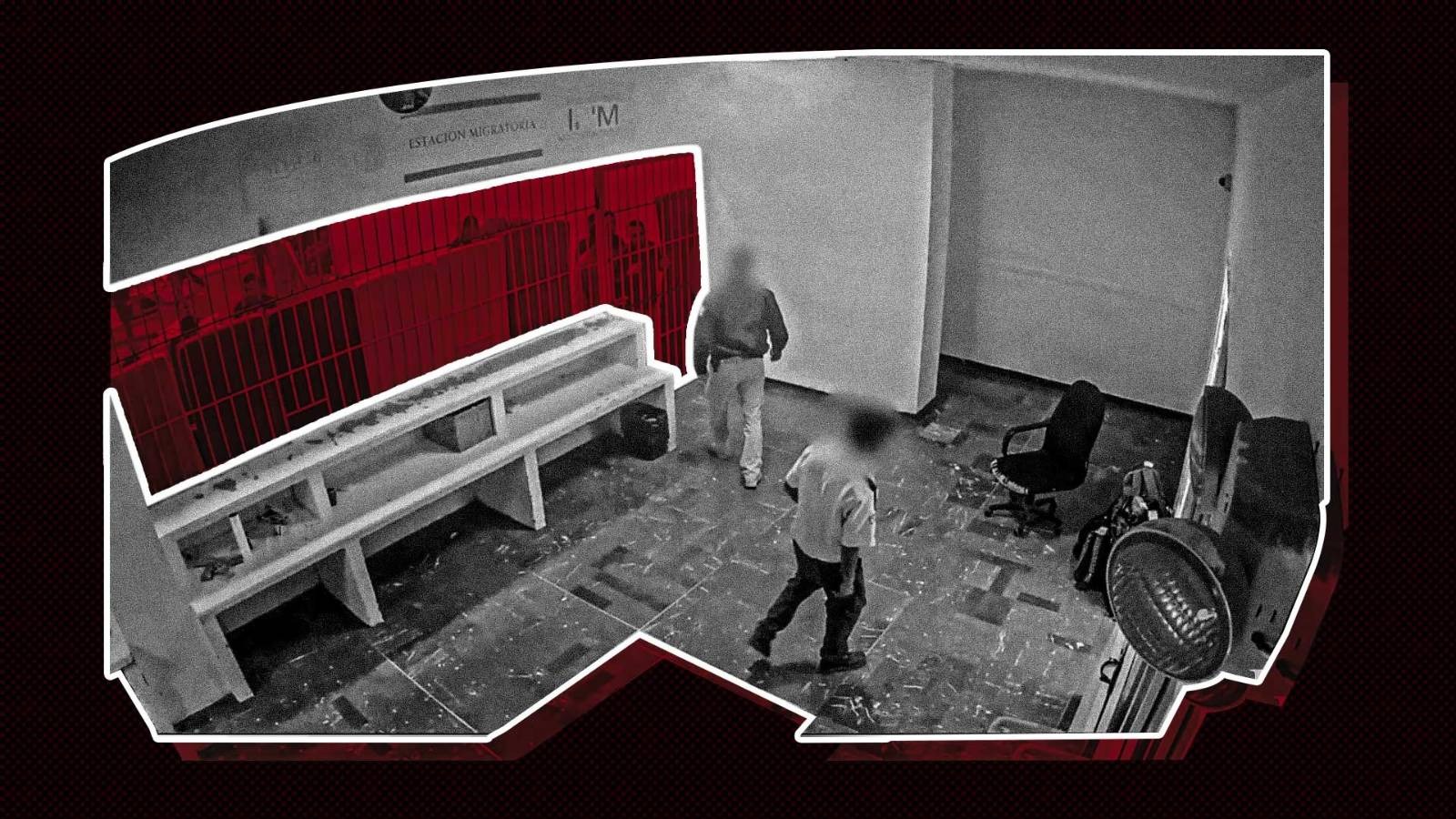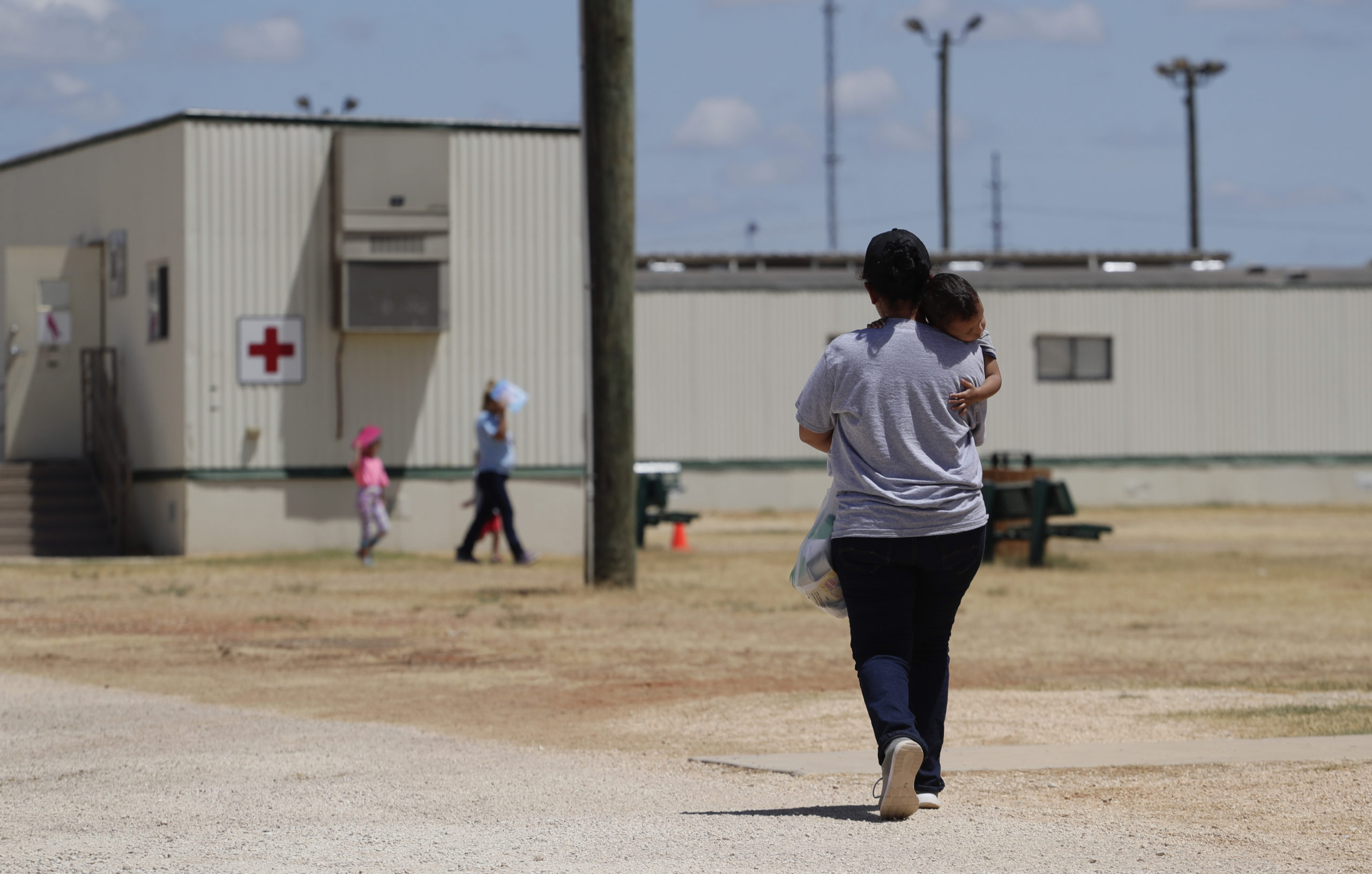
Licensing of Detention Centers Violates State Law, Hurts Families, Attorneys Say


Attorneys representing detained immigrant women and children argued in court Friday that Texas is violating state law and jeopardizing families by approving child care licenses for the state’s two family detention centers. Lawyers for the state and private prison companies that operate the facilities maintained that the families’ lawsuit will keep Texas from ensuring that children are fully protected.
Immigrant mothers detained at the Karnes County Residential Center and the Austin nonprofit Grassroots Leadership, also a plaintiff in the lawsuit, are trying to stop the Texas Department of Family and Protective Services (DFPS) from issuing child care licenses to the Karnes facility and the South Texas Family Residential Center in Dilley; together they are currently detaining 1,800 women and children, many of whom are fleeing abuse and death threats. The state approved a license for Karnes in late April — even after identifying deficiencies and investigating a sexual abuse allegation — but has halted its process for the Dilley center while the civil case plays out.
Texas’ attempt to grant licenses began last fall, and for months, anti-detention groups and immigration activists have said that the move by DFPS is predominantly about enforcing federal immigration policy, not preserving child welfare.
Robert Doggett and Jerry Wesevich — Texas RioGrande Legal Aid attorneys representing the plaintiffs — argued before Travis County Judge Karin Crump that DFPS that does not have the legislative authority to issue licenses to immigrant detention centers. The state’s main motivation, they said, is keeping them open and in compliance with the 1997 Flores v. Meese agreement, which prohibits detention of children in unlicensed facilities. Last summer, a federal judge in California reaffirmed the Flores agreement and ordered that children in unlicensed centers be released.
“The federal government then went to lean on the state to license them,” Wesevich said. “So DFPS came up with an idea about how and why it had the authority to license the facilities, and we say not so fast.”
Plaintiff attorneys also maintained that detaining immigrant children violates state law, which prohibits their detention in “secure detention centers” “solely for the purpose of deportation.” Children are being housed illegally, Doggett said, and therefore the state should not approve a license to continue their detention.
Jay Brown, an attorney representing the Corrections Corporation of America that operates the Dilley facility, argued that the immigrant facilities do not meet the state’s definition of “secure detention center,” which the Legislature wrote before the centers began housing children.
“I’m a little surprised at the argument that this is a not a secure detention center,” Crump told Brown in response to his assertion. “There is no availability of these detainees to come and go, which is part of the definition of whether something is secure.”
During her testimony, longtime immigration attorney and immigration law expert Barbara Hines refuted Brown’s claims, asserting that families are housed in the Karnes and Dilley facilities for the purpose of deportation.
Upon apprehension at the border, Hines explained, each person is issued an “expedited removal order” and then “families have the burden to overcome the deportation order,” she said. Throughout her 40-year career, Hines has provided pro bono legal assistance to mothers and children detained in Texas immigrant facilities, and many times, she said, they are ultimately deported.
Since it began the licensure process, the state has maintained that approving licenses ensures that DFPS can fully protect children by imposing additional regulations — such as staff background checks — on the detention centers.
State attorney Todd Disher tried to show that without the license, DFPS would not necessarily have the authority to inspect the facilities should they violate state standards, or investigate allegations of abuse or neglect. For example, the facilities would not be subject to unannounced inspections, and the public would not have access to investigations opened by DFPS, which the agency makes public online.
“Children are better off in a licensed facility than they would be in an unlicensed facility,” Disher said.
Three mothers detained in Dilley also appeared in court, sharing stories of being unable to sleep at night due to interruptions by facility officials, bad food and water, and the depression their children experience in the lockups.
“My daughter asks me why is it we’re in this jail…she asked me if people here are bad like they are in Guatemala,” said one mother, whose identity is being withheld at the court’s request. “If I’m running away from my country and i’m facing a situation here of being put in a jail… I don’t think that’s right for any human being.”
Despite those stories, defendants’ attorneys argued that there is no evidence to show that children will be harmed if the state approves licenses.
Plaintiffs disagreed. DFPS’ new rules for the licenses diminish the state’s minimum standards for residential child care centers, they said. Specifically, children can stay in rooms with adults that they are not related to, which plaintiffs and child welfare groups say creates a situation for potential abuse.
Doggett pointed to the experience of E.G.S., a plaintiff in the case who alleges her adult roommate sexually abused her 12-year-old daughter. In her sworn statement, E.G.S. says she reported several incidents to Karnes officials. Although she was moved to another room, federal and state officials ultimately closed their investigation after determining the case “lacked evidence.”
After eight hours, Crump said she wanted more evidence extended her temporary restraining order stopping the licensure of Dilley until June 1, when attorneys will meet in court again before Crump makes a final ruling.
Crump, though, identified “a bigger problem” than the legal back-and-forth over licensing.
“I’m disappointed the Department of Justice isn’t here, because they’re the ones that need to hear this,” she said in her closing statements. “We need to figure out how to take care of these kids. If they’re going to be in our care, we need to be caring for them.”


